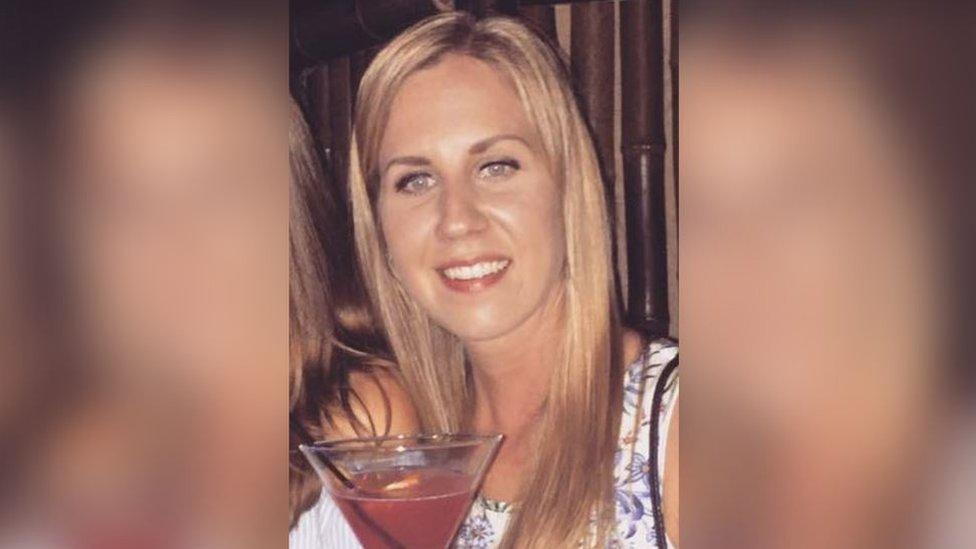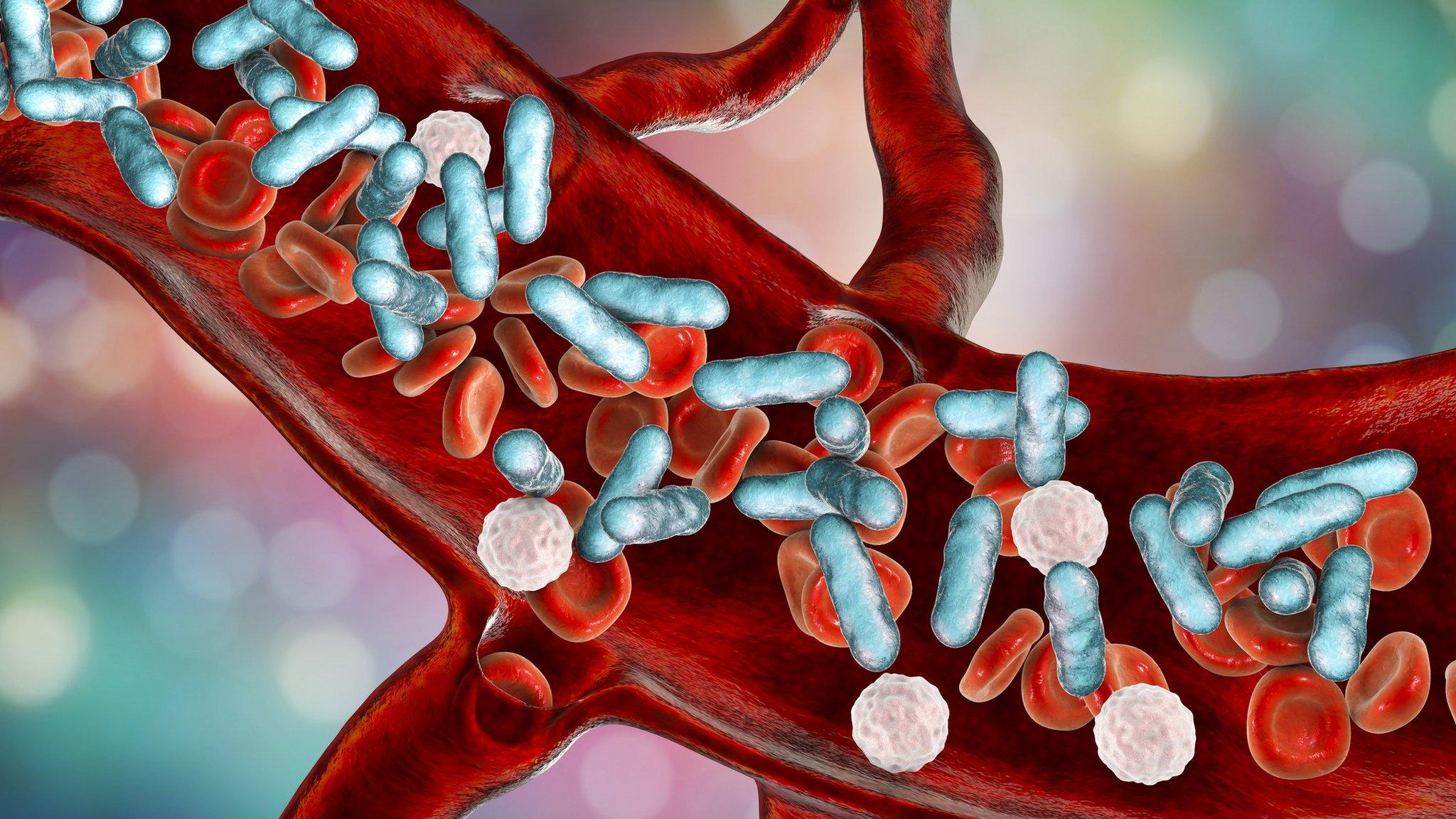Girl, 5, with sepsis sent home without antibiotics
- Published

Ava had Down's syndrome which can make children more susceptible to infections
Prescribing antibiotics to a girl who died of toxic shock syndrome 24 hours earlier could have "given her chances of survival", an inquest heard.
Five-year-old Ava Macfarlane died on 15 December 2017 after being treated at Nottingham's Queen's Medical Centre.
She had been discharged from A&E two days earlier after a doctor said he was "reassured her temperature and heart rate was lowering".
Nottingham Coroner's Court heard she was "critically ill" when she returned.
Dr Nicola Kelly, a paediatric consultant, treated Ava when she was re-admitted on 14 December.
Asked by Assistant Coroner Laurinda Bower whether failure to treat her a day earlier contributed to her death, she replied: "yes."
"She was critically unwell and if she had received antibiotics 24 hours earlier it could have potentially given her a chance of fighting the infection.
"When I saw her, her body was already shutting down."
'Did not make right decisions'
On Monday Ava's mother, Lesley Gearing, said her daughter had been vomiting, struggling to breathe, had a high temperature and a rash.
Emergency doctor Dr David Shearn admitted she showed at least two "red flags" of sepsis and failure to follow the Sepsis Six Pathway protocol contributed to her death.
Dr Christopher Haddon, who discharged Ava from A&E on 13 December, said he was going on advice from Dr Shearn that "if her temperature settled she could probably go home".
He said, on reflection, he now regretted that decision.
"My feeling was that she had a simple viral illness rather than something more serious," he added.
"I now wish I had acted differently.... I clearly did not make the right decisions."
He said sepsis was "not at the forefront of his mind" at the time but the coroner asked why this was the case when there has been several high profile cases in recent years, in particular the death of six-year-old Jack Adcock at Leicester Royal Infirmary in 2011.
The hospital said leaflets were now handed to patients to help identify sepsis and staff were given mandatory training.
Elizabeth Marder, a doctor specialising in Down syndrome, said that the immune system of people with the condition generally does not work as well and there was now a drive at the hospital to make sure parents and doctors know this.
She added: "[Down syndrome] is likely to have been a contributing factor for her to become so sick so quickly."
The inquest continues.

Follow BBC East Midlands on Facebook, external, Twitter, external, or Instagram, external. Send your story ideas to eastmidsnews@bbc.co.uk, external.
- Published13 September 2018

- Published12 July 2019

- Published11 July 2019

- Published4 July 2019
